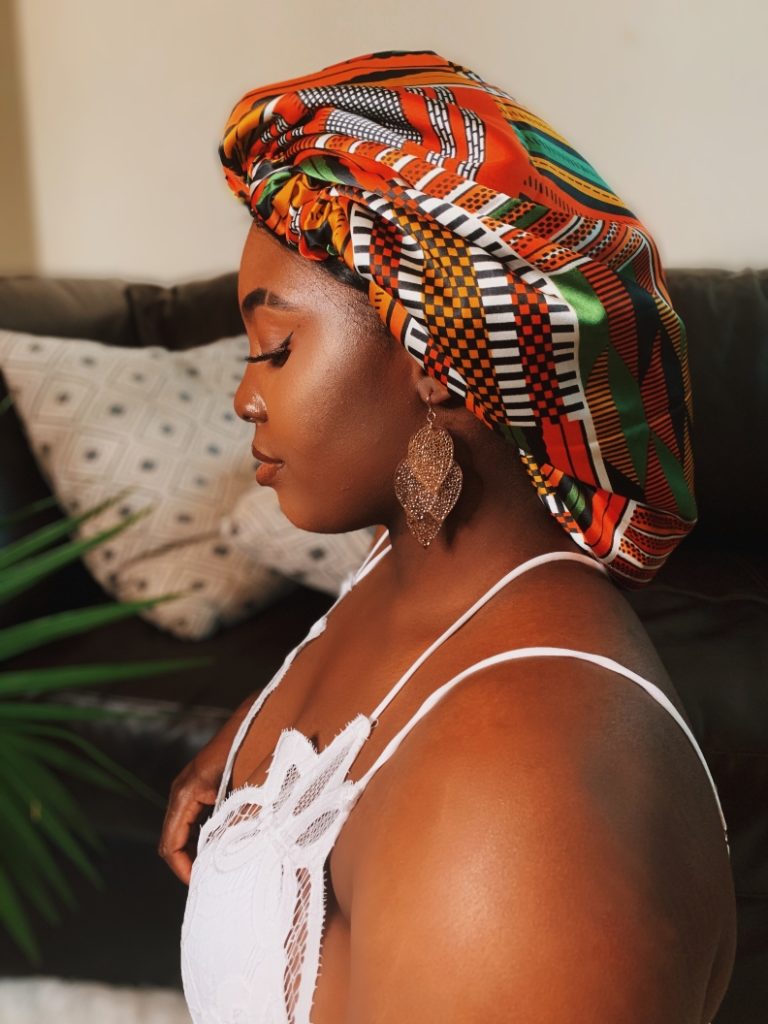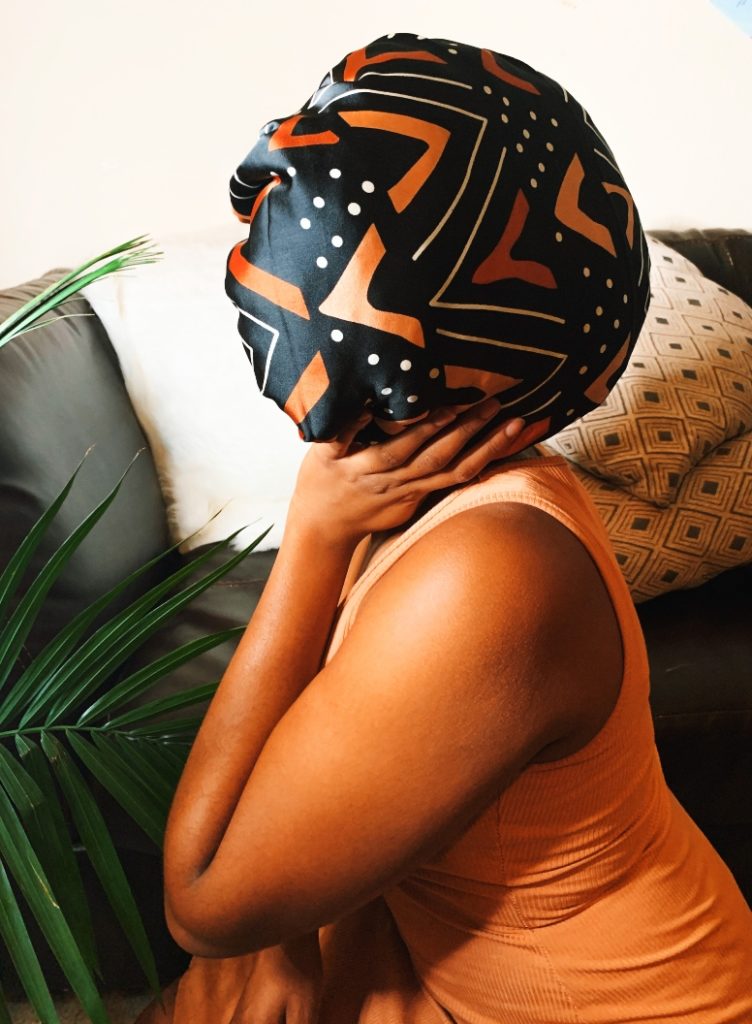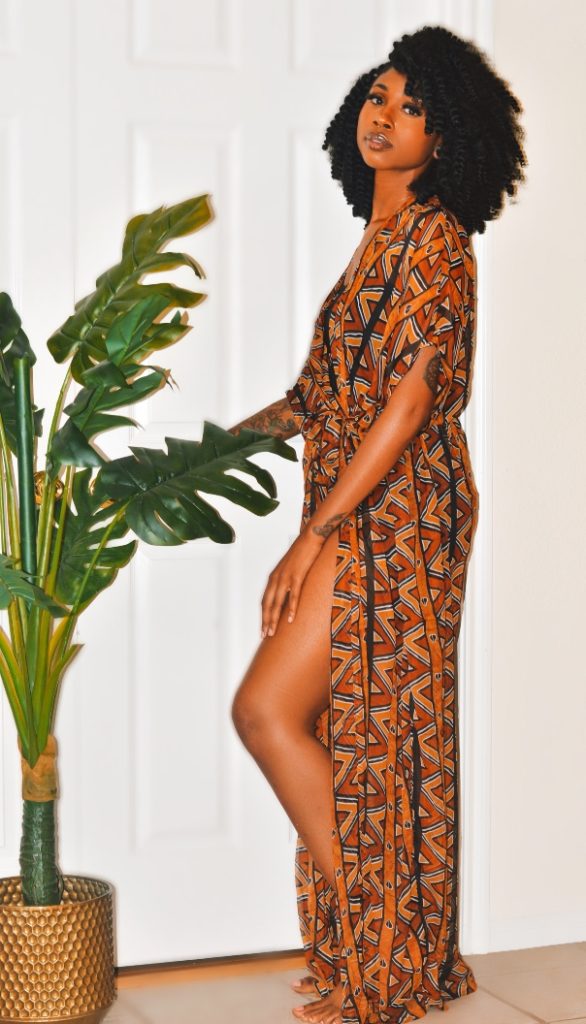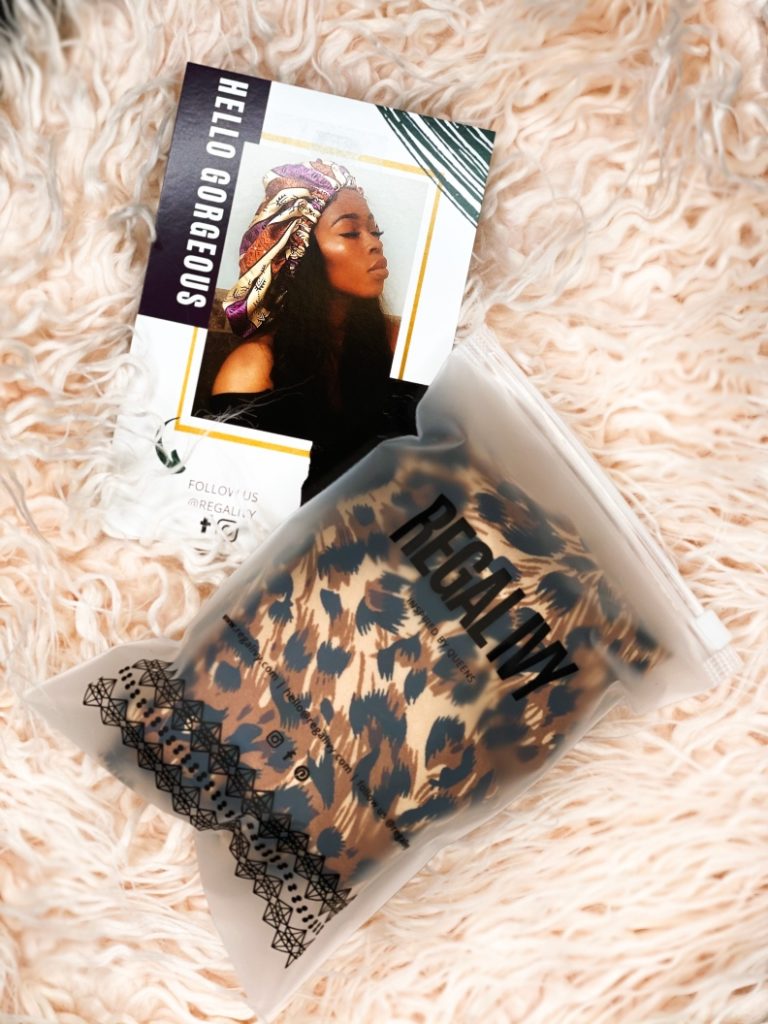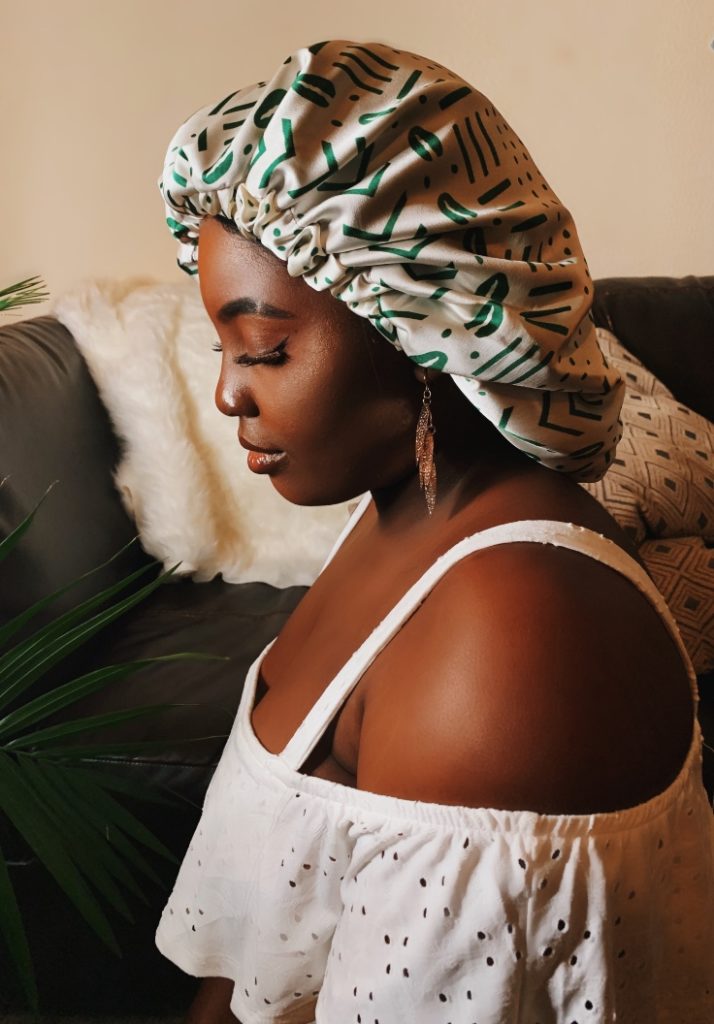Nigerian-American designer Chinyere makes protective headwear fit for all queens.
By Brianna Caleri, Photos courtesy of Regal Ivy and Ure Oguguo
The “Berlin Cleopatra,” a famous marble bust of the Egyptian queen made during her lifetime, depicts her in a diadem that now looks like a simple headband. Meanwhile, at New York City’s Metropolitan Museum of Art, one of only two known sculptures to portray the Pharaoh Hatshepsut as a woman depicts her in a khat, or a bonnet-like head cloth. These world-renowned African queens inspired one Nigerian-born Austinite to design a luxury collection of hair accessories featured by Cosmopolitan, Essence and more.
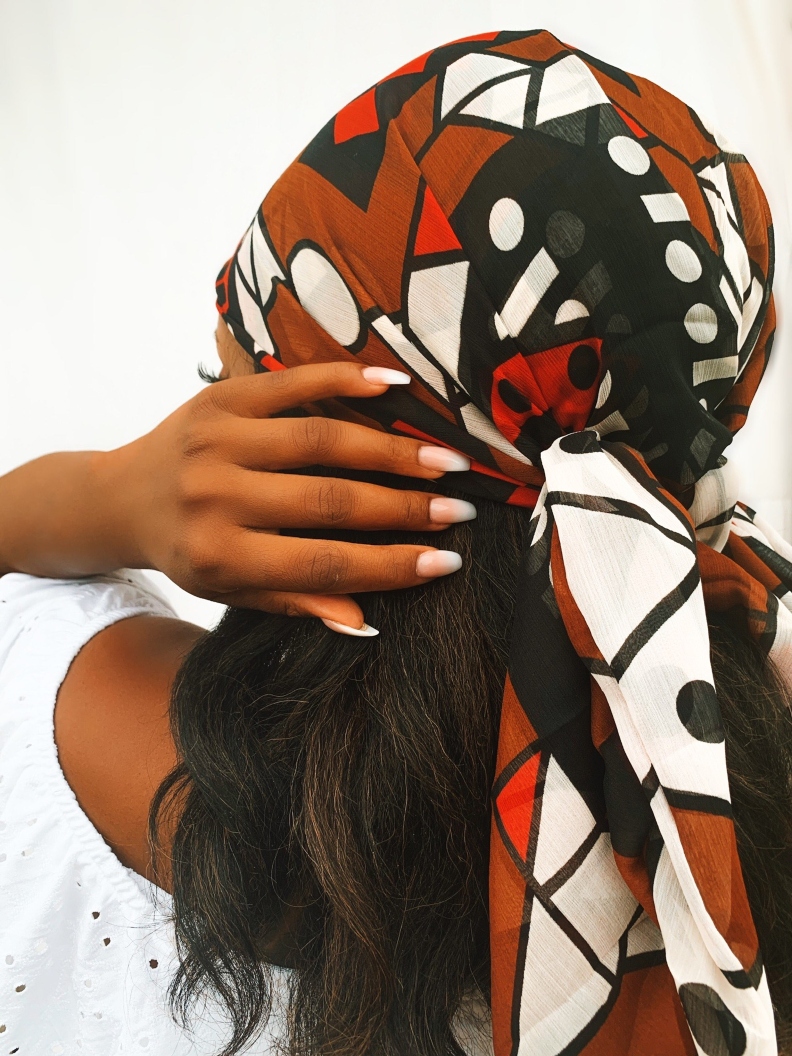
Chinyere started Regal Ivy as a New Year’s resolution in 2018. Without even an idea to work on, she made herself a promise. She would start a business, and she wouldn’t quit, “no matter what.”
At the time, she had a sizable afro that wouldn’t fit in any of the protective covers she could find at salons. And even if it could fit, there was nothing exciting about the modest black fabric. She went to JOANN Fabrics and Crafts, picked out a pattern that made her feel pretty and with guidance from YouTube, produced a bonnet more worthy of resting on her head. Chinyere’s sister asked for a batch to gift her bridesmaids, and Regal Ivy was born. Spending years as project coordinator for Apple, she understands that elegance reflects quality.
“When you purchase an Apple product, you know what to expect: quality, instantly,” Chinyere says. “A queen is not going to purchase trash.”
Comfy and Luxurious
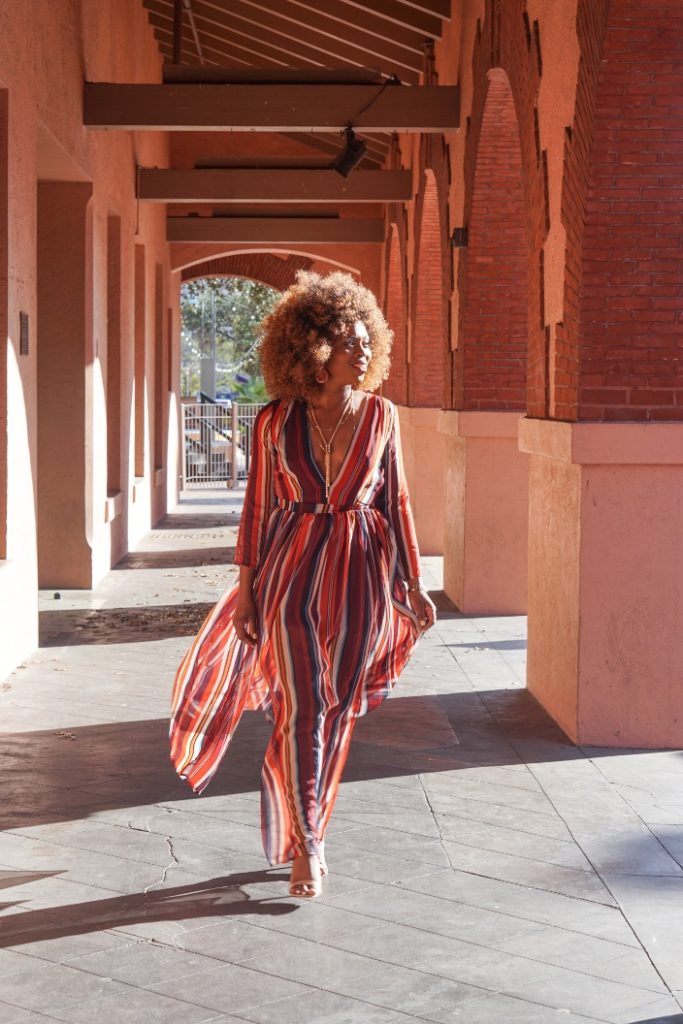
Regal Ivy designs are lined with charmeuse, a top-quality satin weave that is silky on one side and matte on the other. The reversible bonnets have two layers—one classic black layer and one vibrant African print—both with its silky side exposed to protect the hair. Anyone with curly hair, but particularly a Black woman, has to be gentle with their coarser texture to avoid breakage when dry or snagged on seemingly benign objects. The drawstring-optional bonnets, showercaps, wraps and turbans preserve moisture to keep the hair strong. While other products like Nigerian-made robes complete the comfy but luxurious mood.
The patterns have meanings, but Chinyere makes sure their aesthetics can hold their own. One print she shared features cowrie shells. A remnant of a shell-based monetary system that is now a shorthand for wealth and prosperity. The shells float over loud greens that, knowing this, might invoke American money for an American queen. Otherwise, it’s just a great-looking fabric that would really pop against gold jewelry. Another simpler print is striped with clay-colored chevrons for a more neutral but equally striking look. Chinyere’s mother, part of a team back in Nigeria that helps her shop and fulfills orders, recognizes the prints by name. Chinyere shares some of the symbolism on the website and social media, but laughs. “I wouldn’t buy a print that’s ugly but says beautiful things.”
More than Tying a Piece of Fabric
Chinyere moved to Austin from Nigeria when she was 14. Like most immigrant teenagers, she says, she just wanted to fit in, and she was already quite good at it. Her fashion sense in the city in Nigeria was not so different from here. There’s still one thing she has to work harder to explain to Americans. She makes it a point to try as often as possible. “It’s more than just tying a piece of fabric around your head.”
Across Africa, head wraps hold significance in several aspects of life—social status, maturity, respect, spirituality and beyond. Yes, Regal Ivy is inspired by queens of the past. However, Chinyere senses the royalty in every woman. To her, queenly behavior is what she did in college. Reconnecting with her cultural roots by bringing more Nigerian elements back into her personal style. It’s about her Sundays now, with four kids, when she puts on her own products and makes time for self-care.
“Being a queen is not just being royalty and wearing a crown,” Chinyere says. “But being your own woman and being empowered and following your passion.”



